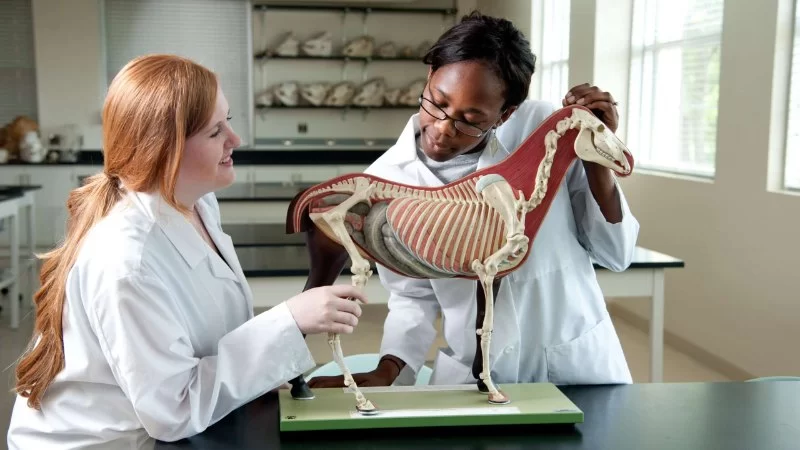What Is the Schooling for a Veterinarian? Full Guide from Start to Career
- starting-early-the-high-school-foundation
- undergraduate-education-what-to-major-in
- vet-school-structure-and-what-to-expect
- how-long-does-it-take-to-become-a-vet
- real-stories-and-student-perspectives
- turning-education-into-a-career-in-veterinary-medicine
1. Starting Early: The High School Foundation
If you’re already asking, “what is the schooling for a veterinarian?” in high school—congratulations, you’re ahead of the game. The journey often starts in those early science classes. Biology, chemistry, and even physics build the academic foundation needed later in college. Volunteering at shelters or shadowing a vet gives you a leg up and helps clarify whether this path truly aligns with your passion.
Colleges love applicants who show early commitment to animal health. AP science classes and extracurriculars like Future Farmers of America (FFA) or Science Olympiad can show your initiative and academic rigor.
2. Undergraduate Education: What to Major In
2.1 Pre-Vet Is Not a Must—but Science Is
Many aspiring vets think they must major in pre-veterinary studies—but you don’t have to. What matters is completing the core prerequisite courses: biology, chemistry (general and organic), physics, biochemistry, and math. Most students choose biology, animal science, or zoology majors because they naturally cover these subjects.

3405 Hancock Bridge Pkwy, North Fort Myers, FL 33903, USA
See Details2.2 GPA and Experience Matter
Vet schools look for well-rounded applicants. A GPA above 3.5, solid letters of recommendation, and hundreds of hours of veterinary or animal-related experience are typical among accepted students. Don't just study—get hands-on. Whether it's working on a dairy farm or interning at a zoo, every experience counts.
3. Vet School Structure and What to Expect
3.1 Four Rigorous Years
Veterinary school usually lasts four years. The first two years are heavily academic—think anatomy, physiology, pharmacology, and microbiology. The second half focuses more on clinical rotations, where students get practical experience in surgery, diagnostics, and treatment under professional supervision.
3.2 Specializations and Tracks
By your final year, you’ll likely choose areas to specialize in—small animal, equine, food animal, exotic species, or research. This is when your coursework and hands-on experience begin to shape the kind of vet you’ll become.
4. How Long Does It Take to Become a Vet?
When asking “what is the schooling for a veterinarian,” you’re also asking about time. On average, it takes 8 years after high school: 4 years for an undergraduate degree and 4 years of veterinary school. If you include internships, residencies, or specialization certifications, the timeline can extend another 2–5 years.
That may sound long, but for most vets, the rewards—saving lives, helping families, and working with animals daily—far outweigh the years of study.
5. Real Stories and Student Perspectives
Emma Johnson, now a third-year vet student at Ohio State, said, “I was intimidated by the schooling for a veterinarian at first. Physics wasn’t my thing, and organic chem nearly broke me—but I pushed through. Now I’m scrubbing in on surgeries, and I wouldn’t trade it for anything.”
On forums like r/veterinaryschool and VetMed Network, students often share raw, unfiltered experiences—from burnout to triumph. These candid insights show the challenges are real, but so is the joy of finally becoming a doctor for animals.
6. Turning Education into a Career in Veterinary Medicine
Once you've completed your DVM (Doctor of Veterinary Medicine), you'll need to pass the NAVLE (North American Veterinary Licensing Examination) or its equivalent. From there, your options open wide—private practice, emergency care, research, wildlife conservation, or even public health.
Now that you understand what the schooling for a veterinarian involves, are you ready to begin your journey? Whether you're planning your high school courses or researching vet schools, the path starts now. Explore our hand-picked tools and prep courses designed to make every step—from biology labs to licensing exams—easier and more effective.
Because becoming a veterinarian doesn’t just start with a dream—it starts with smart preparation.











